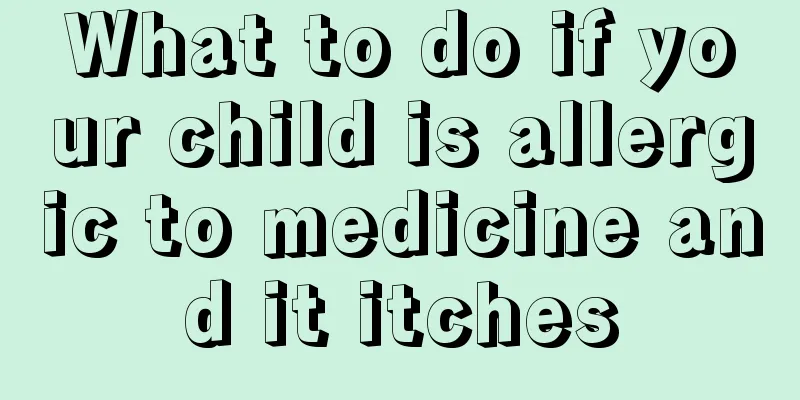What is jaundice? Different types have different causes.

|
Many newborns are particularly prone to jaundice. The causes of this disease can be divided into two main types: physiological and pathological. Generally speaking, physiological jaundice will disappear naturally without treatment, while pathological jaundice requires treatment targeted at the cause. Physiological jaundice Most full-term infants develop jaundice 2 to 3 days after birth, which is most severe on the 5th to 7th day and disappears on the 10th to 14th day. In premature infants, jaundice may be delayed to 3 to 4 weeks and the general condition is good. The upper limit of physiological jaundice in premature infants with serum bilirubin <257umol/L (15mg/dl) is currently considered inappropriate, because smaller premature infants may develop bilirubin encephalopathy even if their bilirubin is <171umol/L (10mg/dl). Pathological jaundice 1. Characteristics: ① Jaundice appears within 24 hours; ② Jaundice is severe and develops rapidly, with serum bilirubin >205umol/L (12mg/dl) or rising by >85umol/L (5mg/dl) daily. ③ Jaundice persists for too long (>2 weeks in full-term infants, >4 weeks in premature infants) or recurs and progressively worsens; ④ Serum conjugated bilirubin >26umol/L (1.5mg/dl). 2. Causes (1) Infectious: ① Neonatal hepatitis, mostly due to the virus transmitted to the fetus through the placenta or infection through the birth canal, with cytomegalovirus and hepatitis B virus being the most common; ② Neonatal sepsis and urinary tract infection, due to bacterial toxins accelerating the destruction of red blood cells and damaging liver cells. (2) Non-infectious: ① neonatal hemolysis; ② biliary atresia; ③ breast milk jaundice; ④ delayed meconium excretion; ⑤ genetic diseases such as erythrocyte 6-phosphate glucose dehydrogenase (G6PD) deficiency; ③ drug-induced jaundice such as vitamin K. etc.; ①Others such as hypoglycemia. Treatment of jaundice Find out the cause and treat the primary disease. Supportive care is available. Except for a few cases of congenital biliary atresia that require surgical intervention, the vast majority can be treated medically. |
<<: What should I do if my baby has diarrhea after eating something bad? Use medicine appropriately
>>: Symptoms of Bronchitis in Children? A Comprehensive List of Symptoms
Recommend
Why do children's teeth turn yellow?
It is said that teeth are bones. Once our body la...
What to do if your newborn has reversed day and night
In life, the health of the newborn is a matter of...
What can children eat to nourish their brains?
Nowadays, parents attach great importance to thei...
How should scrotal hernia in children be treated?
It is very normal for newborns to have hernias. I...
Introduction to secondary enlargement of tonsils
In our daily life, we usually distinguish tonsill...
How long does it take to cure infantile bronchitis?
Infants are more susceptible to diseases due to t...
This is very useful for rebellious children
Having a child is not as easy as people think. A ...
What are the benefits of hula hoop gymnastics for children
Babies are the apple of the eyes of the whole fam...
How to quickly eliminate children's allergies
Baby allergies are different from adult allergies...
Can cleft lip and palate be seen by ultrasound? A must-see for expectant mothers
I believe everyone is familiar with cleft lip and...
Causes of night sweating in children
Children are the hope of the entire family. Durin...
What should I do if my baby's lips suddenly turn purple?
Everyone should have had this experience: on cold...
How to regulate the stomach of children?
Recently, many young children have been suffering...
What should I do if my child has bronchial cough? It is enough to learn these measures
If a child has a bronchial cough, it means that t...
What should I do if my baby is shy and timid?
Many parents have the question of why other peopl...









